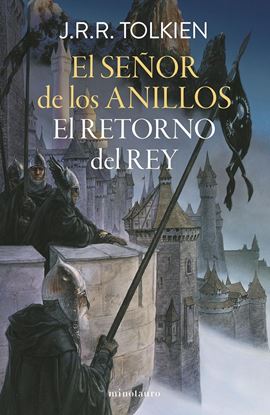

SEIS CUATRO (BOL)
En enero de 1989, una niña de siete años fue raptada al norte de Tokio. Los padres nunca llegaron a saber la identidad del secuestrador. Tampoco volvieron a ver a su hija. Nombre en clave del caso: Seis Cuatro.
Más de una década después, el jefe de prensa de la policía se ve obligado a volver sobre el suceso, cuyo estigma no se ha diluido en el tiempo: el fracaso de la investigación sigue siendo motivo de escándalo. Pero el veterano Mikami no aspira ya a resolver el crimen, solo pretende tender una mano a la familia de la víctima y contribuir de algún modo a limpiar la reputación del cuerpo. Sin embargo, tras detectar una irregularidad en el expediente, Mikami acabará desvelando el móvil de un delito que encierra secretos inimaginables.
950
SEIS CUATRO (LI) (BOL)
En enero de 1989, una niña de siete años fue raptada al norte de Tokio. Los padres nunca llegaron a saber la identidad del secuestrador. Tampoco volvieron a ver a su hija. Nombre en clave del caso: Seis Cuatro.
Más de una década después, el jefe de prensa de la policía se ve obligado a volver sobre el suceso, cuyo estigma no se ha diluido en el tiempo: el fracaso de la investigación sigue siendo motivo de escándalo. Pero el veterano Mikami no aspira ya a resolver el crimen, solo pretende tender una mano a la familia de la víctima y contribuir de algún modo a limpiar la reputación del cuerpo. Sin embargo, tras detectar una irregularidad en el expediente, Mikami acabará desvelando el móvil de un delito que encierra secretos inimaginables.
550
SEIS PERSONAJES EN BUSCA DE UN AUTOR (B
Publicada en 1921 y representada desde entonces incontables veces en todos el mundo, Seis personajes en busca de autor presenta a un grupo de personajes que irrumpen en el ensayo de una obra teatral en busca de un autor que pueda contar su historia completa y darles un sentido y un final. Exploración de la teoría clásica de la representación, la obra cuestiona la idea misma de la verdad en el arte y desafía las convenciones teatrales tradicionales. La acompaña en este volumen Enrico IV, una pieza que, a partir de la locura de su protagonista, explora temas como la identidad y la construcción de la realidad, animando al espectador a reflexionar sobre la naturaleza de la ficción. Ambas están consideradas obras maestras del teatro del siglo XX y han influido en generaciones de dramaturgos y narradores posteriores.
950
SEÑAL DE VENGANZA (CRIMEN Y MISTERIO)
1860. Cae la fría y oscura noche en la campiña de Dorset. Ha llegado el momento. Rebecca Tullidge va a escapar de su desgraciado matrimonio y a reunirse con John Bedloe, el policía ferroviario con quien mantiene un apasionado idilio. Pero el encuentro no va como había planeado. Su amante yace muerto en las vias del tren. Robert Colbeck, de Scotland Yard, no piensa dejar pasar la oportunidad de resolver este caso. No será sencillo. Al investigar el turbio pasado de la víctima, los sospechosos se multiplican.
995
SEÑALADO POR LA MUERTE
El episodio final de la saga Trainspotting. Irvine Welsh se despide a lo grande de los icónicos Renton, Begbie, Sick Boy y Spud.
Estamos en 2015 y los destinos de Renton, Begbie, Sick Boy y Spud vuelven a cruzarse. Es decir: tenemos de nuevo reunido al cuarteto protagonista de Trainspotting en lo que el autor ha anunciado como «el Grand Finale de la saga».
Renton es ahora un exitoso representante de DJs que viaja por todo el mundo y se topa en un vuelo transatlántico con Begbie, reconvertido en artista de éxito, hombre casado y padre de familia. A los otros dos no les ha ido tan bien en la vida: Sick Boy sigue en lo del negocio de explotación del cuerpo femenino y Spud es una suerte de mendigo profesionalizado que pide dinero por las calles acompañado de su perro. Las cosas empiezan a complicarse con un turbio asunto de tráfico de órganos y riñones donados o robados, a lo que se suma un cadáver y la aparición de algún que otro secundario de lujo como el taxista priápico Terry Lawson, viejo conocido de los lectores fieles de Welsh.
995
SEÑOR DE ANILLOS 3.RETORNO DEL REY (REV)
La tercera entrega de la trilogía El Señor de los Anillos.
Los ejércitos del Señor Oscuro van extendiendo cada vez más su maléfica sombra por la Tierra Media. Hombres, elfos y enanos unen sus fuerzas para presentar batalla a Sauron y sus huestes. Ajenos a estos preparativos, Frodo y Sam siguen adentrándose en el país de Mordor en su heroico viaje para destruir el Anillo de Poder en las Grietas del Destino.
1,400














